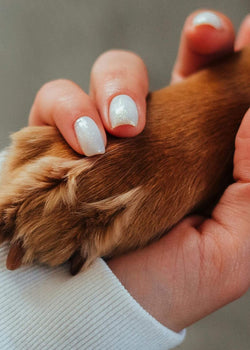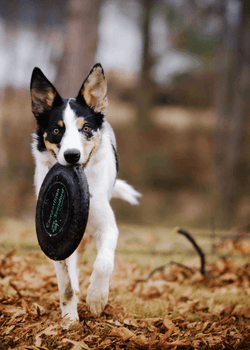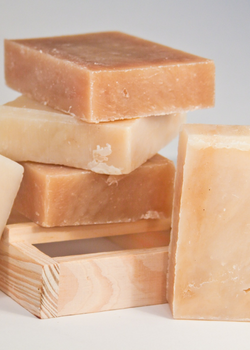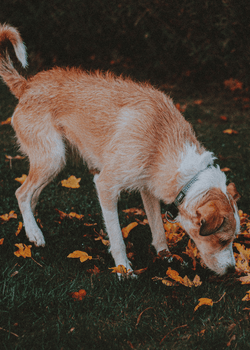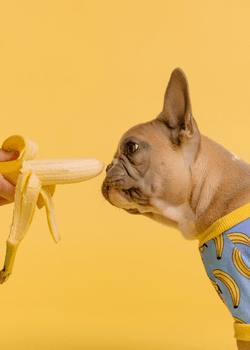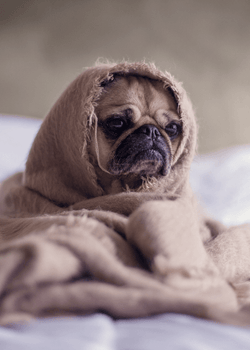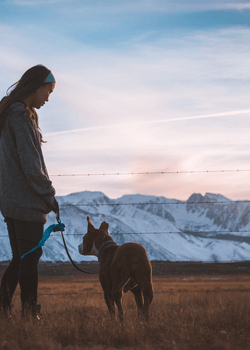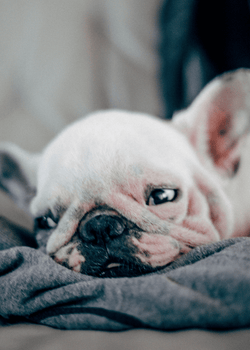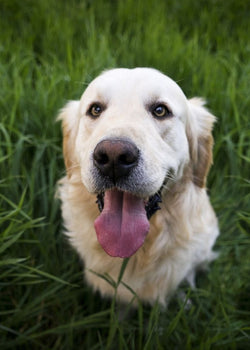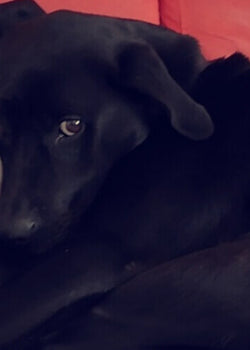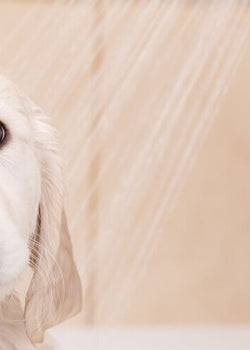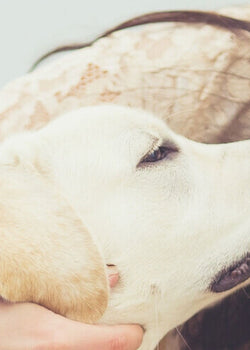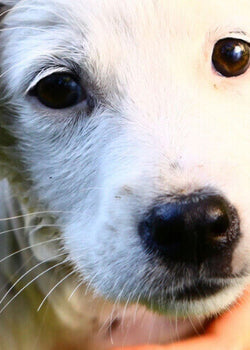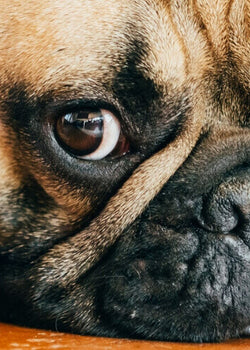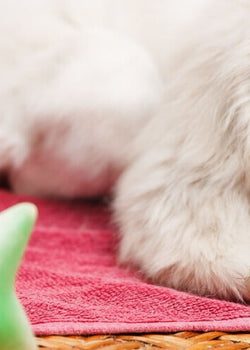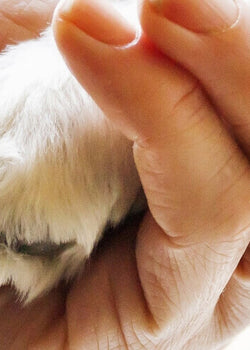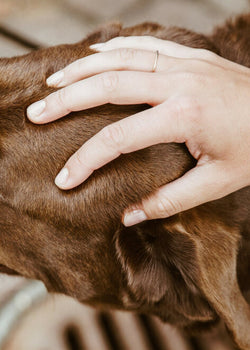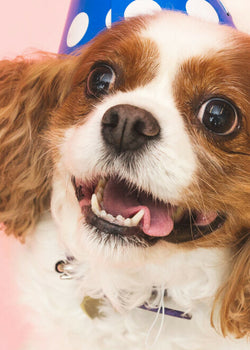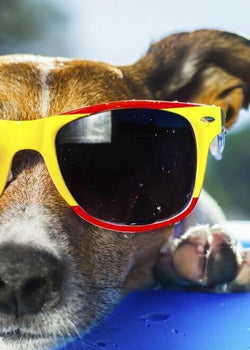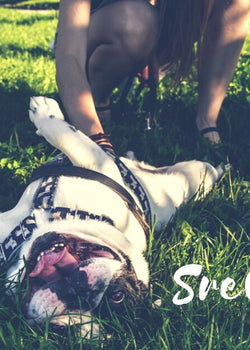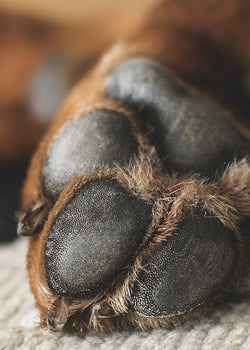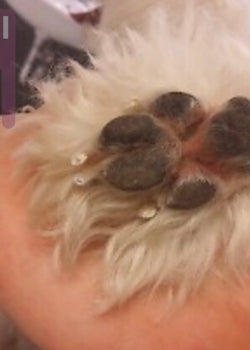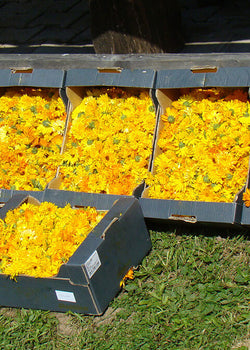The dog poops: reasons and solutions
Of all the not-so-pleasant habits that our dogs have - such as drinking water from the toilet bowl, rolling in the mud, licking their butts, etc. - it is certainly the most unpleasant thing when we see that our dog has treated himself to excrement "for a snack".
This habit even has its own scientific name. So the fact that the dog eats excrement is called coprophagia .
Given that dogs are our family members and that they often lick our faces, this habit is certainly annoying and very unpleasant.

However, don't worry. For every problem, a solution can be found. And if you happen to be wondering if it's just your dog that does this, don't worry. Many dogs, cats and other animals have this habit either by instinct or for behavioral and health reasons.
If you want to wean your pet from this, the most important thing is to find the cause and, consequently, a suitable solution.
We have prepared everything you need to know if your dog poops. From 10 reasons why dogs do this to 6 ways you can wean your pet from doing this.
When is eating poop normal?
For some animal species, such as rabbits, eating faeces is a completely normal way of obtaining key nutrients. If you prevent rabbits from doing this, health problems will eventually appear, and the puppies will not develop well.
Fortunately, dogs don't have to be fed this way. However, this kind of behavior is normal and natural in certain stages of a dog's life.
For example, it is common for female dogs to eat the feces of their puppies during the first three weeks of lactation, as this protects the puppies and keeps the environment clean. It is also common for puppies to eat their own feces (autocoprophagy). In most cases, this behavior disappears in puppies by the ninth month.
Eating your own poop is harmless, but eating other animals' poop can cause health problems if the poop contains parasites, viruses, or toxins.
Facts about dogs that eat poop
When coprophagia occurs in puppies, it is generally considered part of the process of exploring the world around them. Most puppies will be satisfied with sniffing, but some will want to put everything in their mouth and try it.
Interestingly, dogs rarely eat soft, poorly formed feces or diarrhea . They seem to be most attracted to hard feces, especially frozen poop.

But we also have some interesting facts for you from a study about dogs that eat poop:
- Coprophagia is more common in multi-dog households.
In homes with one dog, 20% of dogs had this habit, and in homes with three dogs, this percentage rose to 33%. - A dog that eats poop is just as teachable as one that doesn't.
- Bitches eat feces more often.
- 92% of poo eating dogs want fresh poo that is only 1-2 days old.
- 85% of poo-eating dogs would not eat their own poo, only the poo of other dogs.
- Gluttonous dogs, such as those who steal food from tables, are prone to coprophagia.
Why does the dog poop?
A dog usually poops for reasons such as instinct, hunger, stress or illness.
If your dog eats its own or other dogs' excrement, it is important to find out what causes this kind of behavior, because only then will you be able to effectively help your pet to eliminate this habit.
1. Instinct
Female dogs instinctively lick their puppies, which also includes eating their feces. This is normal behavior of mothers, as they keep the puppies and their environment clean.

Many puppies also eat feces when they are young. Usually, this behavior subsides within nine months, but in some cases it continues into adulthood.
Some dogs are also attracted to the feces of other animals, especially cats. If you have a cat at home, you may or may not have noticed that your dog likes to hang around the litter box. And if you do, be careful and clean the cat litter regularly so that your dog does not get a "treat".
2. Hunger and obsession with food
A starving or malnourished dog may eat anything it finds. But there are also some dogs that are constantly hungry, even if they are well fed (this can be a sign of certain diseases or simply the dog's personality). Certain dogs are completely obsessed with food and will eat anything they find that they like.
Unfortunately, many dogs actually seem to like the taste of poop (especially cat poop). Some people believe that dogs eat feces when they are lacking something in their diet, but most vets say that this is not actually the cause of coprophagia.
3. Anxiety, fear and stress
Possible sources of anxiety that can cause a dog to poop include:
- General anxiety
- A dog's concern about being confined and alone
- Separation anxiety - when you are gone for a long time
- Sudden lack of activity
A dog in fear or under great stress may eat its own excrement. In some cases, this is like a kind of self-soothing mechanism.
However, if you punished the dog for where he pooped, for example, or for some other act related to feces, he may associate the punishment with the presence of excrement, and because of this, in fear of the punishment, he eats the excrement to wipe away the "evidence" behind him.
Also read: 15 ways to make your dog happier
4. Illness
Some diseases can cause a dog to poop.
Diseases such as diabetes and thyroid problems can make your dog appear hungry when he is not.
However, some dogs with dementia and other brain diseases have also been known to start eating feces as a result of the confusion and disorientation caused by the disease.
If this kind of behavior appeared suddenly, a visit to the veterinarian is recommended.
5. He wants to get your attention
Some dogs may have started eating excrement at a young age because they thought it was a game. For example, some puppies explore by grabbing feces with their mouths. And if you caught your pet doing this kind of thing as a puppy, you would probably run towards it and shout, for example, "put it down".
When this happens, some puppies may get scared and leave the poop and never touch it again. Other puppies may interpret the yelping as an excited invitation to play.

Well, if your dog understood your warning in a slightly wrong way, in diameter, if he wants your attention, he will grab the excrement and in all probability get it.
This behavior can then be passed on and when your dog becomes an adult it is like a learned behavior that attracts their attention.
So, if you see your dog pooing, don't overreact, but rather try to divert attention.
6. Lack of vitamins
One theory is that dogs who eat poop are trying to correct a lack of enzymes or vitamins.
7. Parasites
Intestinal parasites also need food. If your dog has internal parasites, his body gets less nutrients and as a result he is hungrier. Due to lack of it, he can start pooping.
8. They are afraid of being punished
If your pet has ever defecated in an inappropriate place (e.g. in the house) and you have punished him, he may in the future eat excrement and hide the "evidence" due to fear of punishment.
9. Boredom
If your dog is home alone all day and doesn't have much to do, he will already find something to do.
If he has any poop within his reach, this can be a great way for him to have fun and satisfy his hunger.

10. Their poop tastes good
Some dogs eat their own or other animals' poop because it's good for them.
Dog poop: How can we prevent it?
Now that you may have figured out why your dog poops, read more about how you can prevent this behavior. If you suspect that it is a health problem, do not delay a visit to the veterinarian.
- Walk your dog on a leash - this will make it easier to control and act quickly if your dog wants to defecate.
- Always pick up poop after your dog. If your dog likes to eat excrement, don't forget to pick up excrement from your lawn as well - if you have a dog outside or if you let it out when needed. When you let him go, watch him and after he's done, quickly distract him and pick up the poop.
- Teach your dog the "leave" command.
- Talk to your vet about changing your dog's food or trying a balanced diet. Make sure your dog is getting all the nutrients it needs.
- Avoid Punishment - Punishment can stop the behavior in the short term, but it can make the behavior worse in the long term.
- Develop a play routine that provides exercise and employment. This is very important, especially if you have a working breed. Choosing safe toys that provide entertainment is also a great idea for times when you can't play together but keep your dog busy.

What is the risk if my dog poops?
If the dog's own excrement is for him, there is practically no risk. However, bacteria and parasites from this feces can be transmitted to humans and other animals through contact - with the dog's mouth and saliva.
If you are unable to prevent the dog from eating the feces, thoroughly wash your hands and areas that have been in contact with your dog's mouth/saliva.
However, when a dog eats the feces of another animal (especially another dog or cat), it risks ingesting the eggs of intestinal parasites and potentially harmful bacteria that can easily lead to disease.
The most unpleasant thing for dogs that eat poop is definitely bad breath. Home dental care can help with this, but the best and most effective way is to find out the cause and work on weaning the dog from doing this.

